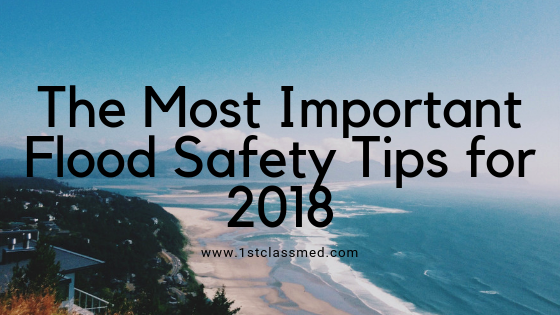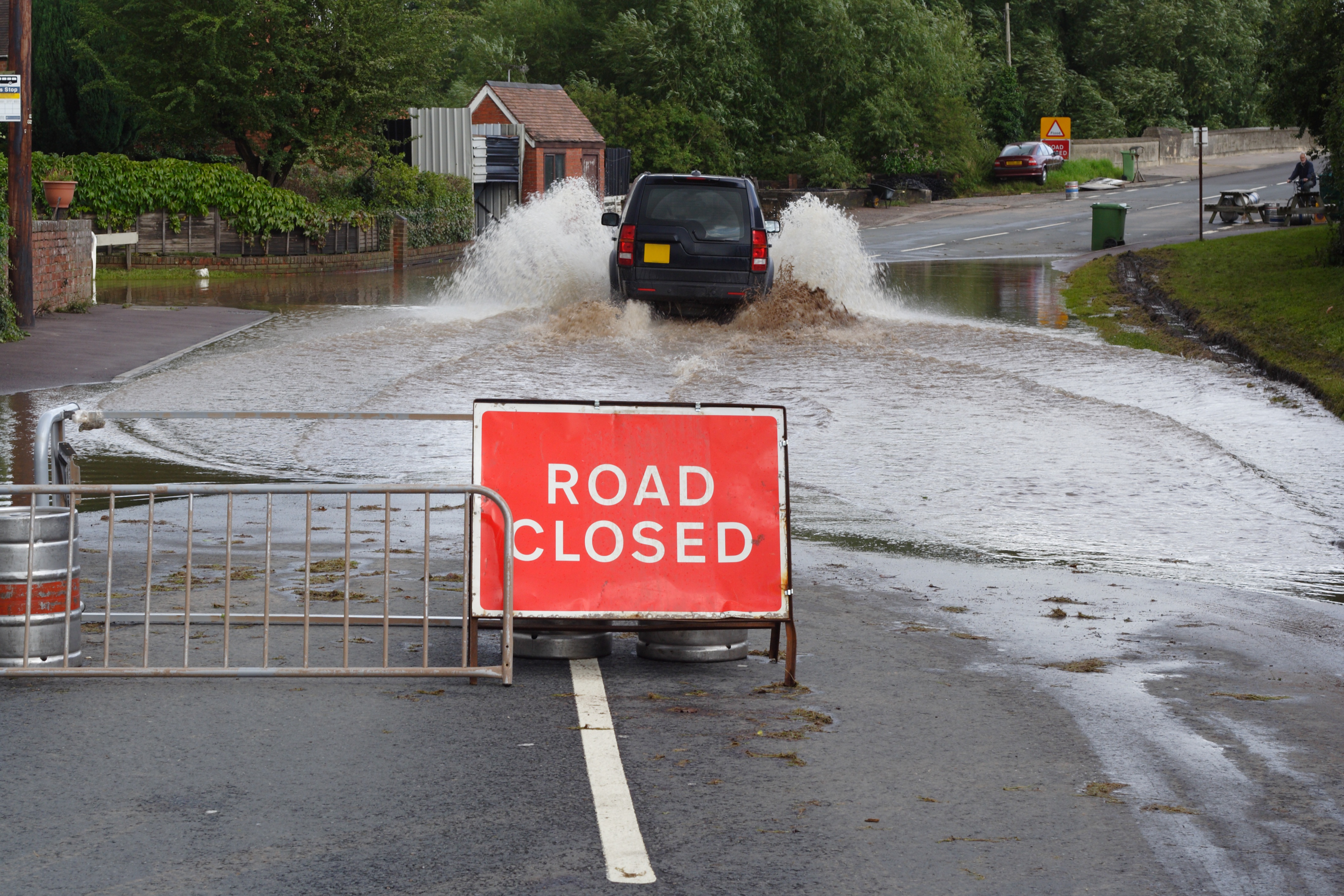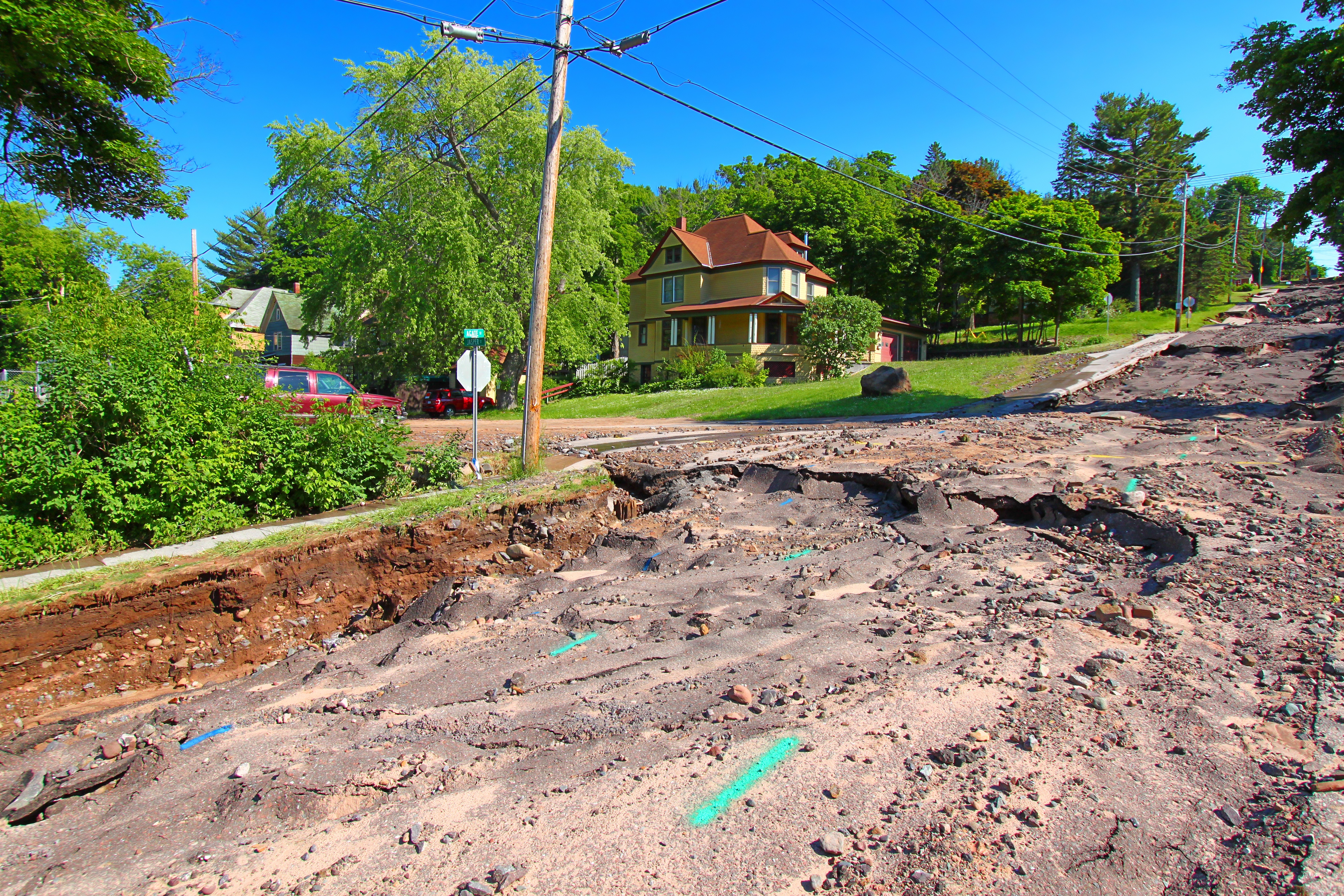
With the recent hurricanes in the past few months, we wanted to touch on flood safety and what you can do if you are ever in a situation with flooding.
Flooding is when water is overflowing onto land that is normally dry, and can be a result of rain, snow, coastal storms, storm surges, overflowing of dams or other water systems.
Flash flooding can occur very fast or slow and can come without any warning.
This rush of water can take down buildings, trees, light poles, electrical lines and other large objects.
The destruction that is caused can then cause power outages, and very dangerous landslides.
Floods can knock you down, and even move cars, so it is important to do what authorities are telling you and to evacuate if you are told to do so.
If you are caught in a flood but were not told to evacuate or you cannot evacuate, move to higher ground, stay where you are and stay away from water.
Do not try driving or swimming in the water, and avoid bridges and any fast-moving water, such as a canal.
Preparing
If you live in an area where flooding can occur often, or you are unsure if you are at risk, visit the Federal Emergency Management Agency and look up your location.
If you find that you do live in an area where flooding is common, make sure you have a game plan if severe flooding does occur.
Prepare emergency routes, shelter plans and prepare supplies so you are ready to go when floods hit.
Your supplies should have food and water, medications, any pet needs and batteries for flashlights or to charge phones and other important equipment.
Collect all immunization records and important documents and keep them in a waterproof container.
Make sure you have a NOAA Weather Radio and a local radio that allows you to listen to current emergency instructions and information.
Purchase flood insurance, as many homeowner’s policies do not provide any flood coverage, which can cost you a lot of money if a flood were to hit.
It is also important to protect anything of value in your home and keep on a higher level, make sure gutters and drains are also clear of any debris and look into purchasing a sum pump powered by a battery if the power were to go out.
If your home is evacuated turn off all electric and gas switches before you leave home.
Make sure every member of your family knows the plan if a flood does occur and has a responsibility to help prepare faster.
During
Depending on your location and the severity of the flooding, make sure you and your family all know the safe location if flooding does occur.
Never walk, swim or drive through any flooding water, do not cross bridges or drive around any barricades or sand bags.

If your car is caught in flooding, stay in the vehicle unless the water starts flooding the inside of your car, then move to the roof of your car.
Moving to your roof can be dangerous, but if done correctly you will be okay.
Simply open your window, sit on the door (where the window comes out of), reach to the top of the car and pull yourself up.
If inside, get to the highest level that has windows and doors, be weary of going to an enclosed attic as the flood waters can end up trapping you.
It is important to never be alone during a flood as you get older, as the flood waters can push you down easier and you may have a hard time moving to higher ground.
If flooding does occur it is best to stay in group as you will be able to help each other and keep track of each other.
Only drink, bathe, brush teeth and wash dishes with bottled water, until you get the all clear to drink water from local authorities.
If you are unsure about the water, throw it away, it is best to be safe than sorry.
Afterwards
Only return home if you are clear to do so from authorities, make sure to listen to all information and instructions they provide you.
Beware that you may not have any gas or electricity when returning home, or you may have both but there can be electric lines in the water, so keep electricity off until your home is cleaned and repaired.
Also, be prepared for wildlife to be in your home after flooding, such as snakes, insects and even large animals trying to take refuge in your home.
If you are not fit to clean your own home after a flood, hire a company to come in and deal with cleaning and restoring your home, do not cause yourself any physical pain trying to clean your home.
Keep in mind that the water can contain debris or can be contaminated as well as power lines can be under the water making it electric, so do not walk through any water.
Rid your home of any drywall and insulation that was contaminated with water, as well as anything that cannot be washed with bleach.
Throw away mattresses, pillows, carpets, padding, and toys that cannot be cleaned, as these can have contaminated water that can harm you.
It is recommended to keep all items outside until the insurance claim is filed.
If you choose to use a generator or a gas-powered machine, keep it outside and away from windows and water in order to prevent carbon monoxide poisoning.
While cleaning make sure all remaining surfaces are thoroughly cleaned with soap, bleach and water, surfaces such as hard-surface flooring, walls, cabinets and furniture (table, chairs, desk, etc).

Conclusion
Your safety is the most important thing during a flood, as personal items and homes can be replaced.
Look into flood insurance for your home if you find yourself in an area where flooding is common.
Be prepared for an evacuation and have important documents and survival items ready to go if you do have to leave home.
Try to stay in a group if you are stuck and unable to evacuate, as you will be able to take care of each other throughout the time.
No matter what, listen to authorities and follow directions, because if you do not you can put yourself in harms way.



